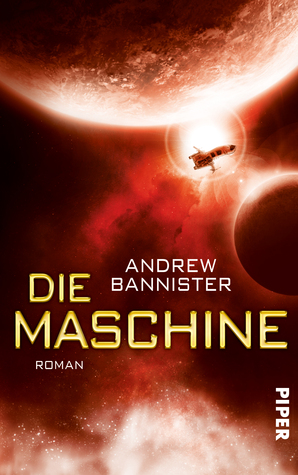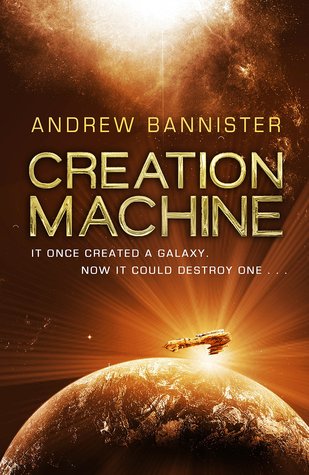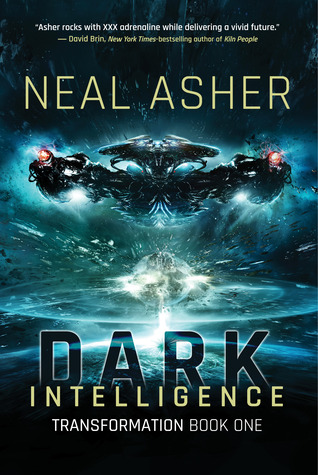Regular readers already know that I often present novels of writers with little experience who have managed to pique my interest, either by an attractive synopsis, by some laudatory review, or, sometimes, by intuition or hunch. The latter is the priority reason I asked for the ARC of Creation Machine, by Andrew Bannister. My intuition has worked, but only partly. Let's see if I can explain.
The main merit of the novel is the world-building. The action takes place in a part of the galaxy called The Spin, about 30 light-days across, which was artificially created, with about a hundred inhabited planets in which different types of societies have arisen, have expanded, and they have come into conflict over the millennia. At the time the story begins there is a growing force, the Hegemony, and a small force that confronts it, the Society Otherwise. Simultaneously, in other small sector of The Spin dominated by a cruel and inhuman empire, an ancient and powerful artifact, whose origin may be the time of the formation of Spin, has been discovered. The two stories advance independently, and with very different styles, one with a lot of movement, action and variety, and other more conventional focused on politics and conspiracies (the latter I think it would suit perfectly in any epic fantasy novel with slight changes in the ambientation).
The first quarter of the novel hooked me. The situations were very different, very original spatial and temporal settings, and that showed a lot of creativity, and the story had me very intrigued. At times it reminded me the novels of Scalzi and Varley, due to the use of humor and the atmosphere, although there are some topics, especially what concerns to the main characters (the very bad and very cruel ruler, and the generational conflict between a daughter and her father).
But from the first third of the novel, what was a virtue became a default. The author opens many fronts and adds many layers to the story and finally it has escaped from his hands and has failed to convincingly connect everything, and to explain it to be clearly understood.

It's a pity because I think the author has potential, there are some situations and some characters very interesting and original , but I think he has tried to string together a story too ambitious and has failed to dominate it.







